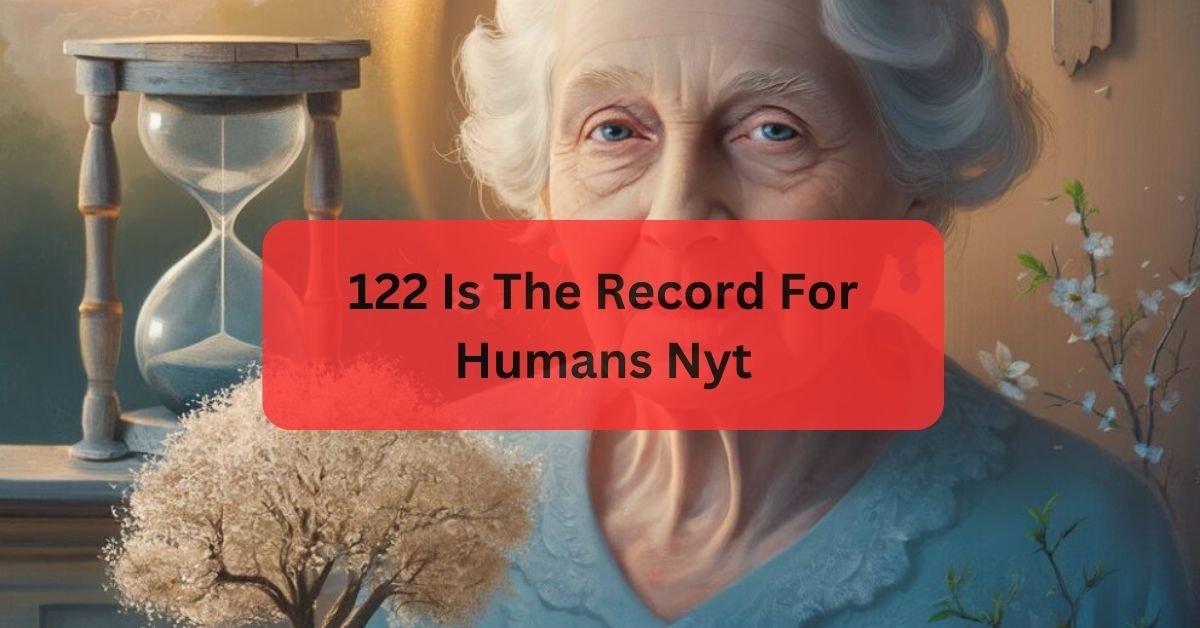Jeanne Calment, a remarkable woman from France, lived an extraordinary life, becoming the lo
ngest-lived human ever verified.
Jeanne Calment, born on February 21, 1875, lived to 122 years old. Her long life was due to staying active, eating olive oil and chocolate, and maintaining a positive attitude. She remained sharp and engaged until her death on August 4, 1997.
Her incredible journey through 122 years and 164 days offers valuable insights into the secrets of longevity.
Who Was Jeanne Calment And What Contributed To Her Longevity?
Jeanne Calment was born on February 21, 1875, in Arles, France, and holds the record for the longest verified human lifespan, living to 122 years and 164 days.
Over her lifetime, she witnessed major historical events, including two World Wars and the rise of the internet. Her longevity can be attributed to several key factors 122 is the record for humans nyt:
She stayed active throughout her life, enjoying activities like fencing and cycling when she was younger and walking daily as she grew older.
Her diet was also notable; she consumed a lot of olive oil and regularly enjoyed chocolate, suggesting that a balanced approach to eating might help in living longer.
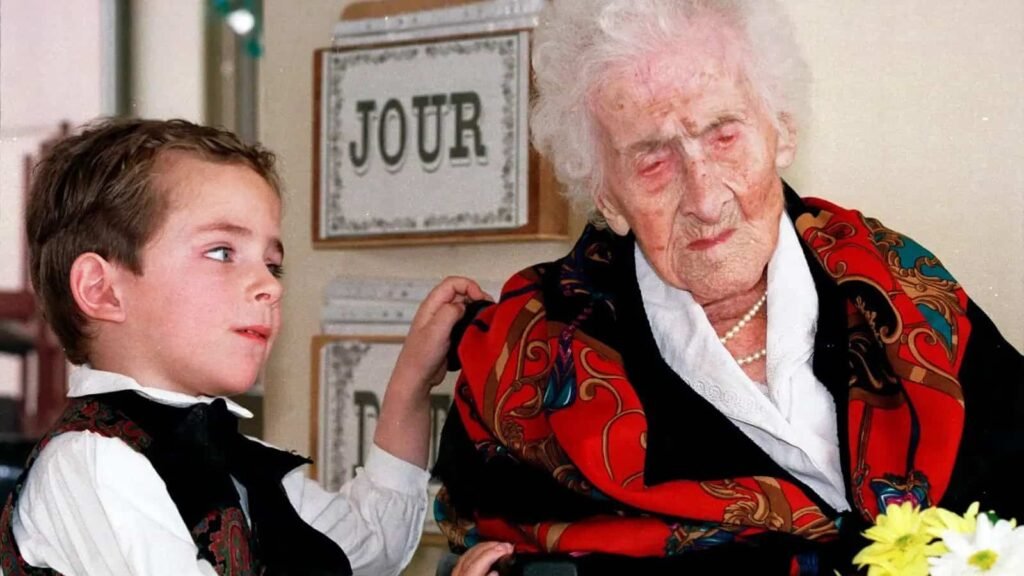
Jeanne was known for her positive attitude and sense of humor, which she believed were essential to her long life. She maintained strong relationships with friends and family, which supported her emotional well-being 122 is the record for humans nyt.
Even though she faced personal losses, such as the deaths of her daughter and husband, she remained sharp and engaging until her death on August 4, 1997.
Who Are Other Contenders For The Oldest Human Record?
Several other individuals have approached or exceeded remarkable ages, offering insight into different longevity factors:
Sarah Knauss (1880-1999):
An American woman who lived to be 119 years old. Known for her sweet personality and love of chocolate, Sarah attributed her long life to staying active and maintaining a positive outlook.
Jiroemon Kimura (1897-2013):
A Japanese man who reached 116 years. Jiroemon’s longevity was credited to his diet, which included fish and vegetables, and his daily routines, which kept him physically active and mentally engaged.
Nabi Tajima (1900-2018):
Another Japanese supercentenarian who lived to 117. She enjoyed traditional Japanese activities and maintained strong social connections, which were thought to contribute to her longevity.
Violet Brown (1900-2017):
A Jamaican woman who lived to 117, known for her strong faith and hard work. Violet believed that her longevity was a result of her dedication to both spiritual and physical health 122 is the record for humans nyt.
These individuals, while not surpassing Calment’s record, provide valuable insights into the diverse factors that contribute to long life.
What Factors Contribute To A Long Life?

The factors influencing longevity are multifaceted, involving a combination of genetic, environmental, and lifestyle elements:
Diet and Nutrition:
A nutrient-dense diet, including a balance of fruits, vegetables, whole grains, lean proteins, and healthy fats, is crucial. Specific diets, like the Mediterranean diet, have been associated with increased lifespan.
Physical Activity:
Regular exercise helps prevent chronic diseases, maintains a healthy weight, and promotes cardiovascular health. Studies suggest that moderate, consistent activity is beneficial, whether it’s walking, swimming, or strength training 122 is the record for humans nyt.
Social Connections:
Emotional well-being is supported by strong social networks. Studies have shown that social isolation can negatively impact health, while positive social interactions contribute to lower stress and better overall health.
Mental Health:
Managing stress and maintaining mental health through activities like meditation, mindfulness, and hobbies can significantly impact longevity 122 is the record for humans nyt. Chronic stress is linked to various health problems, including heart disease and hypertension.
Access to Healthcare:
Regular medical check-ups and access to healthcare services play a crucial role in preventing and managing health issues that could impact longevity 122 is the record for humans nyt.
Environmental Factors:
Living in a clean, safe environment with access to clean water, fresh air, and green spaces can influence overall health and longevity 122 is the record for humans nyt.
Read: Shoptowindeals Com Legit – You Need To Know Social Scammer!
What Common Habits Do Centenarians Share?
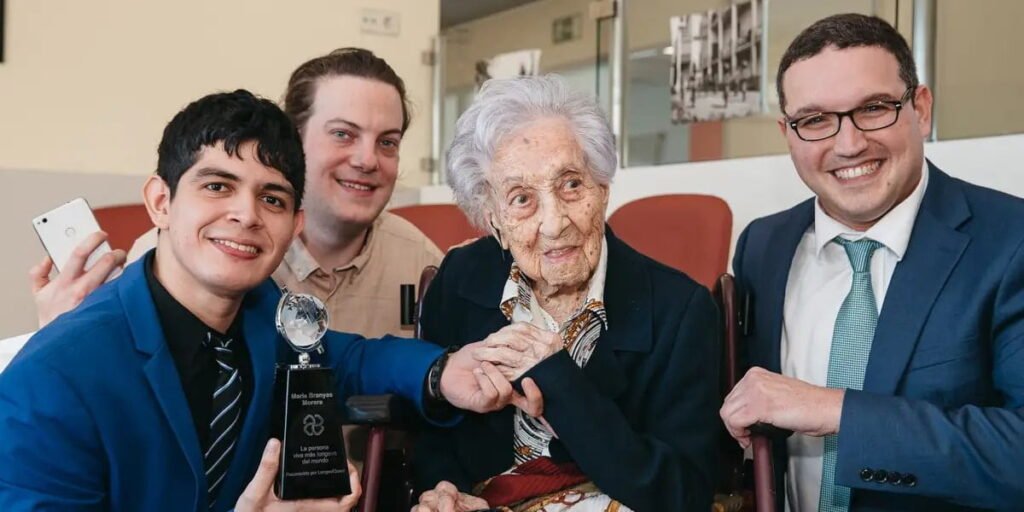
Centenarians often exhibit common habits that contribute to their longevity:
Consistent Physical Activity:
Regular, moderate exercise, such as walking or gardening, is prevalent among centenarians. This helps maintain mobility, strength, and cardiovascular health 122 is the record for humans nyt.
Balanced Diet:
A diet rich in fruits, vegetables, whole grains, and lean proteins, often with minimal processed foods and sugars, is common. Many centenarians follow traditional diets that emphasize natural, wholesome foods.
Optimistic Outlook:
A positive mindset and sense of purpose are frequently observed in centenarians. They often have hobbies, volunteer work, or family roles that keep them engaged and motivated.
Stress Management:
Many centenarians practice stress-reducing activities like meditation, prayer, or leisure activities that provide relaxation and mental clarity 122 is the record for humans nyt.
Strong Social Ties:
Maintaining close relationships with family and friends is a common trait. Social engagement helps provide emotional support and a sense of community.
Moderation in Consumption:
Many centenarians practice moderation in their consumption of food and alcohol, favoring balance and avoiding excess 122 is the record for humans nyt.
What Myths About Aging And Longevity Need Debunking?
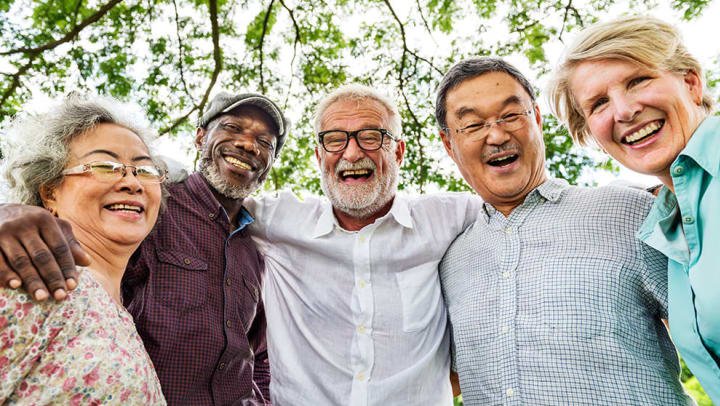
Several misconceptions about aging and longevity need to be addressed:
Myth:
Genetics Determine Lifespan: While genetics play a role, lifestyle choices, such as diet, exercise, and stress management, significantly impact longevity. Environmental factors and access to healthcare also contribute.
Aging Equals Decline:
Aging does not necessarily lead to poor health. Many elderly individuals remain active and healthy through positive lifestyle choices and engagement in life.
Extreme Measures Ensure Longevity:
Moderation and balance are more effective than extreme diets or health measures. Sustainable, healthy habits contribute more to longevity than drastic changes.
Old Age Means Frailty:
Many elderly people remain independent and vigorous by maintaining healthy lifestyles and a positive attitude. Frailty is not a given but can be prevented with proactive health management.
How Does Modern Science Approach Longevity Research?
Modern science employs various methods to study and potentially extend human lifespan:
Genetic Research:
Scientists explore genes associated with longevity and aging, such as those involved in DNA repair and cellular maintenance.
Lifestyle Studies:
Research focuses on how different lifestyle factors, like diet and exercise, impact lifespan and health. Studies often involve large populations to identify patterns and correlations.
Medical Advances:
Innovations in medical technology, including advances in pharmaceuticals and treatments, aim to address age-related diseases and improve health outcomes.
Biomarkers of Aging:
Researchers investigate biomarkers that indicate biological age and health status, helping to understand and potentially slow down the aging process.
Longevity Hotspots:
Studies of regions with high concentrations of centenarians, known as “Blue Zones,” provide insights into dietary habits, social structures, and environmental factors contributing to extended lifespans.
Read: Www.Unfgaming.Net Blog – It’s A Must Read For Every Gamer!
What Role Do Genetics Play in Longevity?
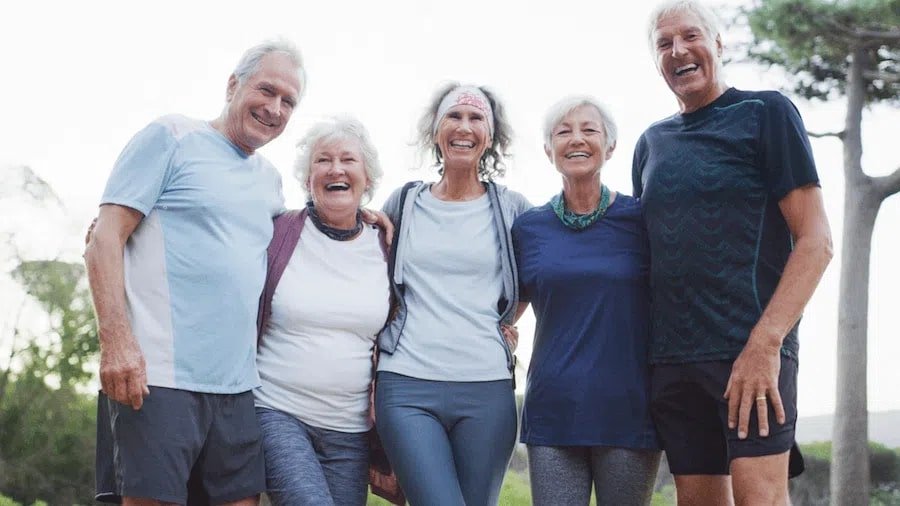
Genetics influence longevity through several mechanisms:
- DNA Repair Mechanisms: Efficient repair of DNA damage helps prevent diseases and maintain cellular function, influencing lifespan.
- Cellular Function: Genetic factors affect cellular regeneration and maintenance, impacting overall health and longevity.
- Metabolic Processes: Genes involved in metabolism influence how effectively the body processes nutrients and manages energy, affecting long-term health.
- Inherited Conditions: Certain genetic conditions can impact lifespan. However, lifestyle choices and environmental factors can mitigate or enhance the effects of genetic predispositions.
How Can Lifestyle Changes Impact Longevity?
Lifestyle changes play a significant role in extending lifespan:
Diet:
Adopting a balanced diet with a focus on whole foods, reducing processed foods and sugars, can enhance overall health and longevity 122 is the record for humans nyt.
Exercise:
Regular physical activity, even moderate forms like walking or gardening, supports cardiovascular health, muscle strength, and mental clarity.
Social Engagement:
Staying connected with family and friends and participating in social activities contribute to emotional well-being and life satisfaction 122 is the record for humans nyt.
Stress Reduction:
Practices such as mindfulness, meditation, and relaxation techniques help manage stress and promote longevity 122 is the record for humans nyt.
What Are The Psychological Aspects Of Aging?
Psychological aspects play a crucial role in aging and longevity:
Mental Health:
Maintaining mental health through cognitive stimulation, social interaction, and emotional support is essential for aging well.
Attitude Toward Aging:
A positive attitude and sense of purpose can lead to better health outcomes and a higher quality of life.
Purpose and Fulfillment:
Engaging in meaningful activities, whether through work, hobbies, or volunteering, can provide a sense of purpose and enhance overall well-being.
How Do Cultural Factors Influence Longevity?
Cultural factors contribute significantly to longevity:
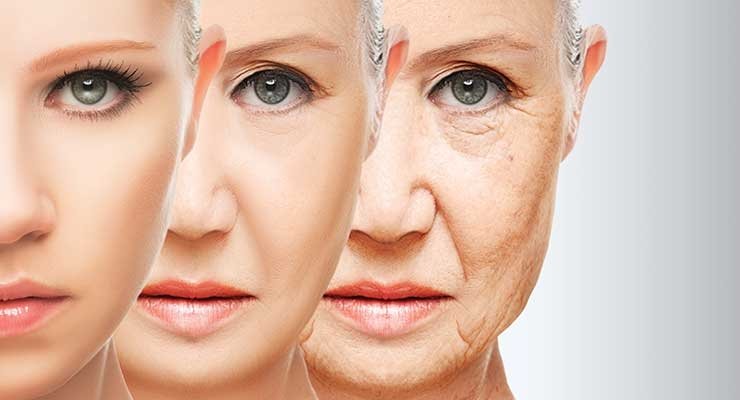
Dietary Practices:
Cultural diets, often rich in fresh, natural foods, play a key role in health and longevity. For instance, Mediterranean and Okinawan diets are associated with increased lifespan.
Social Structures:
Cultures that emphasize family support, community engagement, and respect for the elderly contribute to longevity by providing emotional and social suppor 122 is the record for humans nytt.
Lifestyle Norms:
Cultural norms related to physical activity, stress management, and work-life balance impact overall health and longevity 122 is the record for humans nyt.
Read: Phillipa Mariee – Everythi You Need To Know In 2024!
FAQ’s:
What is the secret to living a long life like Jeanne Calment?
Jeanne Calment’s longevity is attributed to a combination of factors including a healthy diet, regular physical activity, a positive attitude, and strong social connections.
What common habits do centenarians share?
Centenarians typically practice regular physical activity, follow a balanced diet, maintain a positive outlook, manage stress effectively, and have strong social ties.
Do genetics play a significant role in determining lifespan?
Genetics influence longevity, but lifestyle choices, such as diet, exercise, and stress management, play a crucial role. Environmental factors and healthcare access are also important.
How can we debunk myths about aging and longevity?
By educating ourselves, challenging stereotypes, adopting healthy habits, and focusing on positive aspects of aging, we can debunk myths and promote a healthier approach to aging.
Conclusion:
Jeanne Calment’s achievement of living to 122 years old is a testament to human resilience and the potential for extraordinary longevity. Her story, along with other supercentenarians, highlights the importance of healthy living, a positive mindset, and strong social connections.
Read:
